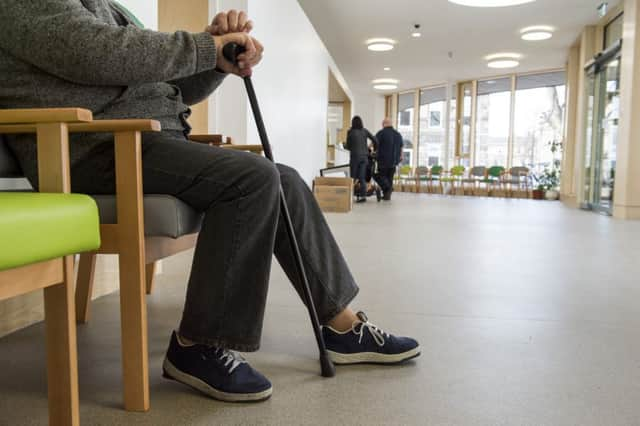Lizzy Buchan: Rural communities’ healthcare lottery


Life in a rural community has undoubted benefits, but what happens when you need to see the doctor?
From the north west Sutherland village of Durness, where NHS Highland received no applications for a GP position, to remote communities in Shetland where the nearest doctor is a two-and-a-half-hour boat ride away, the challenges over healthcare for vulnerable people become more complex.
Advertisement
Hide AdAdvertisement
Hide AdThe Royal College of Nursing Scotland has called for a fresh approach to community care for the elderly, as sobering figures from the National Records of Scotland show that 4 in 10 people in the Western Isles will be over 65 in 20 years’ time, with many living alone.
In the report entitled ‘Going the Extra Mile’ the nursing leaders identified a worrying rise in the number of frail elderly people who are being placed at risk by the acute lack of services.
Healthcare workers in remote settings do a wonderful job to ensure their patients are well looked after but the national GP shortage is piling pressure on the struggling NHS.
The document sensibly suggests developing the role of advanced nurse practitioners, a group of highly experienced nurses who have the clinical experience to make decisions on patient care and reduce the pressure on GPs. The RCN also called for better digital participation among both patients and healthcare professionals to bridge the isolation caused by great distances and poor weather.
Progress has already been made with this sort of innovative work, such as NHS Highland’s helpline for patients living with inflammatory bowel diseases like ulcerative colitis.
Patients are able to take part in video clinics to ensure rapid consultation is available for sufferers of the conditions who often require frequent medical advice.
But for this work to succeed then there needs to be better broadband and greater education to make sure patients do not feel let down by the lack of face-to-face contact with a GP.
There is a wider challenge around care for the elderly in all settings, as work begins to integrate health and social care.
Advertisement
Hide AdAdvertisement
Hide AdMinisters and health leaders need to ensure they do not lose sight of the most remote communities as they shape the future of care across Scotland.
Pensioners, and working age people, living in remote locations should not have to expect a poorer healthcare than their urban counterparts.